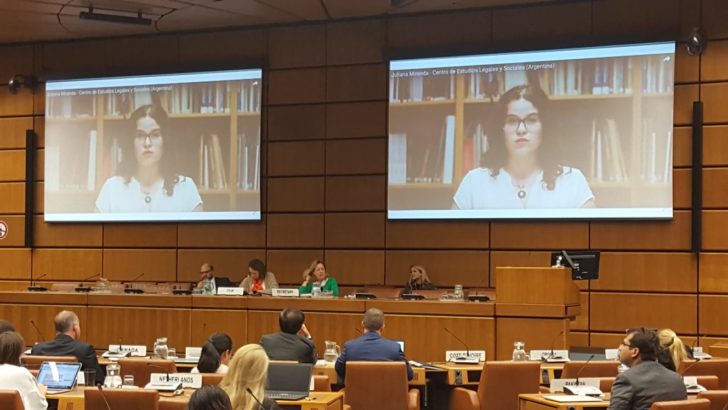State efforts to reduce the trafficking and supply of illegal drugs were discussed on October 22-25 at the CND, the UN body that leads the international drug control system. At this meeting of state delegations, in which other UN agencies and civil society organizations also participated, CELS made a video presentation regarding the worsening of violence and other problems associated with militarized state responses.
The “war against drugs” in Latin America has not managed to reduce drug trafficking, but it has produced more violence and human rights violations. It is important to take this testimony to the CND where planning is under way for a March 2019 ministerial meeting. There, countries will evaluate the global drug strategy expressed in the ten-year Plan of Action agreed upon in 2009. Once this period has concluded, the United Nations must evaluate achievement of the Plan’s goals and revise, renew or change them.
Many countries are unwilling to recognize the evident failure of prohibitionist policies and call for redoubling efforts in the “fight” against drugs. However, under the current model, there has been no reduction in drug trafficking, use, or the appearance of new substances; on the contrary, all of this has increased in the last decade. Civil society organizations and bodies such as the UN Office of the High Commissioner for Human Rights (OHCHR) will continue insisting that drug policies be evaluated from a human rights perspective, a view that traditionally has been absent from this system.
More information about these issues can be found in Taking stock: A decade of drug policy, produced by the International Drug Policy Consortium (IDPC), to which CELS belongs.

